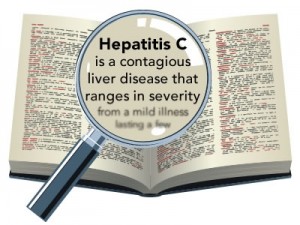 The Centers for Disease Control and Prevention is encouraging all baby boomers (that’s you–if you were born between 1945 and 1965) to get a simple, onetime blood test to see if you have been exposed to the hepatitis C virus. The CDC estimates that 3.2 million Americans have been exposed to the hep C virus.
The Centers for Disease Control and Prevention is encouraging all baby boomers (that’s you–if you were born between 1945 and 1965) to get a simple, onetime blood test to see if you have been exposed to the hepatitis C virus. The CDC estimates that 3.2 million Americans have been exposed to the hep C virus.
Now, there is treatment available that can lead to a cure.
Whether you are a boomer or whether you just know one, this is important, potentially lifesaving information. Knowing your hep C status might help you personally or help someone you know and love stay alive.
As a counselor and nurse practitioner at Montefiore Medical Center, I have observed an increase in efforts to spread awareness about the importance of hepatitis C testing.
Based on my experience, I’d say there’s a lot of fear out there. People are eyeing public-service announcements and worrying about drugs they might have tried “back in the day” or about the blood transfusions they received before 1992 when routine screening started ensuring against this type of transmission, or even about those basement tattoos they hastily etched on their bodies so many years ago.
Others are not worrying at all because they look and feel just fine or because they tried drugs only once.
But the truth is that hepatitis C can be a silent invader, lying in wait for any weakness in the liver that could result in cirrhosis or even liver cancer. Many people who have hep C look and feel fine. Yet the virus is slowly destroying their liver function.
So what happens to a patient after learning he or she has been exposed? Well, first there’s an in-depth workup and then a discussion of possible treatment options.
It’s important to note that not everyone who tests positive for the hep C virus needs treatment. If there’s no evidence of liver scarring or if the scarring is minimal, immediate treatment may not be needed, and patients are placed on active monitoring. As a counselor I see the relief on the faces of patients who don’t have the disease or don’t require treatment.
I also see the resignation, acceptance and sometimes shame of those who test positive for the virus and must be treated.
Treatment for hep C is done on an outpatient basis. I’m part of a team of nurses and doctors who offer support to help limit the severity of the side effects of medication and improve the quality of patients’ lives as we target the ultimate goal of finding a cure.
New treatments take less time to administer than before–six months to a year, depending on the extent of damage to your liver. Still, the side effects can be tough to tolerate. Some of those receiving treatment for hepatitis C face other health, emotional and psychological challenges.
At Montefiore, there is a monthly patient support group in which patients, their families and friends share their experiences, fears and hopes. These groups play an integral role in the healing process, especially emotionally. For those who can’t speak to family or friends because of real or perceived stigma, support groups are a refuge and a salvation.
Empowering these patients to confront hep C head-on fills me with a profound sense of pride and respect.
The worst thing anyone can do in this situation is to ignore the possibility of hepatitis C exposure. Fear of humiliation is not worth putting lives in jeopardy.
Take the first step and get tested. You’re worth it.

